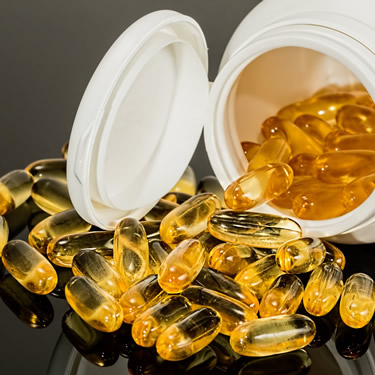 From boosting heart health and the immune system to reducing inflammation and addressing mental health conditions, fish oil may have many benefits. But with so many brands of fish oil available, it’s not easy determining how to select a good one. Dr. Mills has studied nutrition for years and is board eligible for his diplomate in nutrition. He is also a certified functional medicine practitioner. Here are his recommendations on what six things to look for when choosing a fish oil.
From boosting heart health and the immune system to reducing inflammation and addressing mental health conditions, fish oil may have many benefits. But with so many brands of fish oil available, it’s not easy determining how to select a good one. Dr. Mills has studied nutrition for years and is board eligible for his diplomate in nutrition. He is also a certified functional medicine practitioner. Here are his recommendations on what six things to look for when choosing a fish oil.
Purity
Dr. Mills recommends contacting the manufacturer and requesting what is known as a Certificate of Analysis (COA) for each product you are considering. The COA is an analysis performed on each batch of a vitamin produced. If the company is hesitant or won’t provide a COA, or if they send an outdated COA, they get a stop sign.
Once you get the COA, you need to look at and understand what you’re looking at. Basically, the COA is a test for contamination of the product. It will list out parts per million of heavy metals. Unfortunately, we have polluted our world so much that we have established safe levels for these compounds. The goal would be zero toxins or at least as close to zero as possible.
Freshness
When we are looking at freshness, we are not talking about contamination but poor processing. Oils can become rancid or oxidized. Over time, all oils will do this. The rate of this oxidation and rancid process is primarily determined by the processing procedures. The good news is that the COA you requested in step 1 should have this measurement on it as well. It is listed as the “peroxide value.” When looking at fish oil, this number should be less than 5mEq/kg. The lower the number, the better.
Potency
The potency of fish oil that each person should take depends on what their needs are. For example, for those with a chronic inflammatory condition, Dr. Mills recommends the DHA level be over 1,000 mg/day and EPA levels be over 1,500 mg/day. For those taking fish oil for health maintenance, he generally recommends the DHA level be about 500 mg/day and EPA around 500 mg/day.
Bioavailability
Bioavailability is how well your body can absorb and use a substance. When it comes to fish oil, there are basically three forms found in the market: natural triglyceride oil, ethyl ester oil and synthetic triglyceride. From the research that’s available right now, the natural triglyceride oil seems to be the most easily absorbed but is most likely to contain higher levels of toxins, while the ethyl ester oil seems to be the most pure but isn’t easily absorbed by the body. So Dr. Mills tends to prefer the synthetic triglyceride form. For him, it gives the best of both worlds because it is more purified but does have some limitations for absorption.
Sustainability
This one is similar to our first couple of questions of is it safe? However, instead of asking if it’s safe for us, we are asking, is it safe for our oceans? Dr. Mills recommends only choosing products that are considered sustainable, and ones that are certified Friend of the Sea (FOS).
Cost
Dr. Mills calculates cost base on the dose, not the price per pill or bottle. To compare apples to apples will require some math. He uses some pretty simple math. First, what is the cost to achieve the desired dose with this product? If you’re considering an ethyl ester form add 30% because Dr. Mills knows he will need to take about 30% higher doses to achieve the same dose found in a triglyceride form.
For more information, please check out his video on YouTube or contact our practice.
